6 Modern Countries With Shockingly Backwards Views

Racism and inequality are as American as apple pie and mass shootings. We like to think that some of those foreign countries we constantly make fun of might be more civilized places. What could possibly be wrong with a nation that gives its citizens universal healthcare and paid parental leave? Well, if you happen to belong to one of the minority groups those countries have arbitrarily chosen to hate, you're about to find out.
In Japan, Some Common Occupations Are Viewed As Subhuman
Garbage collectors are criminally underappreciated everywhere, but Japan takes it to the next level. Sure, you might have a few strong words if your bin gets skipped, but Japanese sanitation workers are ostracized simply for existing. They -- along with other "unclean" workers, like butchers and undertakers -- are categorized as burakumin. Shintoism and Buddhism consider them spiritually tainted, which left them at the bottom of the social totem pole for centuries. They're sometimes called hinin (literally "nonhuman"), and the term for the lowest burakumin, eta, translates to "abundance of filth." A 19th-century legal document declares that any eta who committed a crime could be killed freely by samurai, because "an eta is worth one-seventh of an ordinary person." You ever had someone whip out a calculator and determine your worth mathematically? It's hurtful. (We had some harsh math teachers.)
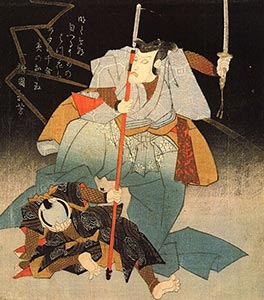
Despite many attempted remedies, prejudice against burakumin and their descendants persists. Burakumin are shunned by society and typically forced to live in their own communities, which are inundated with hate mail. Lists of burakumin communities and names began circulating in the '70s and were soon outlawed, but some of those lists have survived to this day, and people use them to screen everything from potential employees to future in-laws. Keep in mind, they're not just checking to see if (gasp) their daughter is marrying a garbage man. Anyone who has ever been related to one is off-limits. That's about 50 percent of the Japanese population. It's like an entire nation of Emily Gilmores.
Things are getting a bit better. One high-profile buraku activist says people are contacting his organization about discrimination more, and hate speech laws are starting to be enforced. But to this day, if a buraku is asked what they do for a living, it's common to lie -- not out of shame, but to protect their own children.
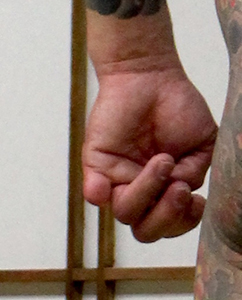
Hug your local sanitation worker.
In Germany, Racist Stereotypes of Asians Are (Literally) Rewarded
After winding up with some serious egg on its face thanks to that whole Holocaust thing, Germany became a pretty progressive place. Today, its culture is shaped by a variety of inclusive policies suited to its multicultural citizenship, about 20 percent of whom are foreign-born. One group that isn't quite so well-represented? East Asians. It's hard to get an accurate count, since about half of Germany's two million "Asian" citizens are from the Middle East (which is indeed part of Asia, but still), but there are at most one million Asian-Germans in a country of 82 million people. Having apparently figured "what they can't see won't hurt 'em," Germany has become very cool with making fun of Asians. In fact, they give out awards for it. Specifically, for this, an ad for a Wagner concert by Japanese conductor Kent Nagano.
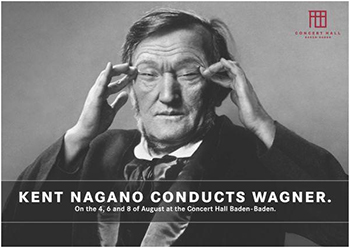
Yes, that's Richard Wagner himself reimagined as your least-favorite uncle. This ad would trigger a tsunami of offense in the U.S., but Germans mostly didn't care. The one group of people that did, a Berlin advertising organization called the Art Directors Club, awarded the ad a gold prize that year. Their spokesman said the ad " charming and funny and shows openness and multiculturalism," and called it "an excellent poster that goes beyond cultures to form a great work and that very strikingly and succinctly shows Asian culture." We're gonna hazard a guess that the Art Directors Club doesn't include a lot of Asians.
All Jews Are Welcome In Israel (Except Ethiopians)
In 1977, Israel decided to bring over 56,000 Jews from Ethiopia, and then treated them like a trendy pet that turned out to be more work than they'd bargained for. Thirty-five years after they were forced into ghettos and isolated from mainstream Israeli life, various surveys found Ethiopian Jews were dead last on the list of desirable employees -- 75 percent of non-immigrant Israelis wouldn't allow their children to marry one, and fewer than 50 percent supported mixed classrooms. Oh, and in 2016, Israel's top police official said that it's natural for police to be more suspicious of Ethiopian Jews, as their "community is statistically involved in crime more than others." Sound familiar?
In 1996, it was discovered that all the blood Ethiopian Jews donated to Magen David Adom (Israel's equivalent of the Red Cross) was quietly destroyed, for fear of HIV infection. Blood donation has been a hot-button issue for Ethiopian Jews ever since. They were only granted permission to donate blood without restrictions in 2017. It gets worse. A 2012 documentary revealed that Ethiopian Jewish women were forced to take contraceptives if they wanted to keep their healthcare. Some didn't even know what they were being given. As a result, Ethiopian immigrants' birth rate fell by half in one decade. You'd think that, as a people, Israelis would be a little less comfortable with the idea of eugenics.

In The UK, Poles Are Viewed As Job-Taking "Vermin"
We've all heard dumb jokes about the Polish for reasons we never quite understood, but they're deadly serious in the UK. A 2014 survey reported that 81 percent of UK Poles suffered physical or verbal abuse, or knew somebody who had. In 2013, 585 people were arrested for hate crimes against the Polish. This explosion of animosity seems to stem from Poland's entrance into the EU in 2004, after which Poles began immigrating to the UK en masse -- though not quite as massively as the tabloids would have you believe.
The Sun once claimed that an entire Polish city up and moved to the UK. The city sued, presumably on the grounds that anyone who's ever been to a city council meeting knows how hard it is to get an entire town to do anything, much less physically uproot. This paranoia about foreign workers infiltrating the country and taking everyone's jobs is at least in part what led to Brexit. After the vote, laminated cards that read "Leave the EU / No more Polish vermin" were found in Cambridgeshire.
Laminated, we say!
That means they were super serious.
South Korea Has A Seriously Messed Up View Of People With Dark Skin
Until recently, racism was an unspoken way of life in South Korea. Biracial models were called "mongrels," the 200,000 children of "marriage migrants" were often treated as second-class citizens, and a shocking number of businesses can still legally refuse to serve foreigners. In South Korean media, black people face the same kind of stereotypes you'd expect from a Civil-War-era KKK pamphlet. We kid you not:

We're not pulling obscure content from the '70s. This was on state-run TV as of 2017:

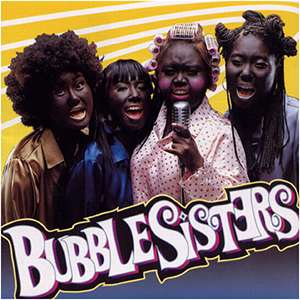
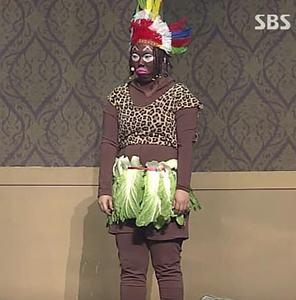
Anti-discrimination bills designed to ease the abundant casual racism have recently been introduced, and the nation finally ended obligatory HIV-screening policy for foreign-born workers in 2017. The UN also requested that the nation stop using racist terms like "pure" and "mixed" blood back in 2007. So, you know, that's something.
Concentration Camps Still Exist ... For The Roma In Italy
The Roma have historically not been well-liked by, well, anybody. But they've been frighteningly oppressed in Europe, and recently. The Czech Republic forcibly sterilized Roma until 2007, France evicted over 10,000 Roma from their settlements in 2013, Swedish police were found to have a secret register of 4,000 (mostly Roma) names the same year, and Denmark cleared out 25 Roma camps in two months, after making them illegal in 2017. It seems like an unnecessarily big fuss over a group that doesn't even crack 2 percent of the European population.
But that's all nothing compared to Italy. In 2008, Silvio Berlusconi's government declared that the existence of Roma settlements (one quarter of a percent of the population) constituted a state of emergency, and henceforth required that all Roma be fingerprintedand evicted from their settlements into "nomad camps." What do you think the chances are that those camps were in scenic Tuscan villas? Surprise: They were filthy, vermin-infested shacks, lacking in even the most basic services.
This was A-OK with the people of Italy, 86 percent of whom have an unfavorable view of Roma, as well as with the courts, who declared discrimination against Roma acceptable "because they are thieves." Again, this seems like a country that should be a bit more wary of xenophobia-based roundups, but hey, as long as the trains run on time.
Kent Nagano is really quite the conductor, give it a listen.
Support Cracked's journalism with a visit to our Contribution Page. Please and thank you.
For more, check out 5 Shocking Laws Modern Countries Had Until A Few Years Ago and 5 Shockingly Progressive Policies From Insane Dictatorships.
It would be a shame if you didn't follow us on Facebook.